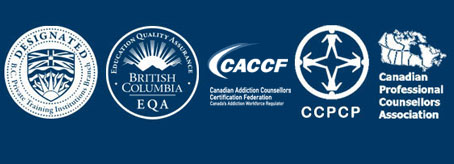Solution Focused Counselling ELECTIVE

SFC-400 Solution Focused Counselling
This course in a nutshell:
Discussion Topics: Solution-focused model and cognitive-behavioural techniques applied to a wide variety of brief term counselling situations, common disorders, and outcome data.
Skills: You will learn to apply solution-focused techniques to the initial interview, treatment planning, and counselling process with individuals, children, adolescents, couples, and families. You will practice solution-focused skills during role play exercises that can readily applied to common disorders found in counselling situations.
Course Objective:
On-line delivery of Solution Focused Counselling (SFC-400) provides students with knowledge related to the use of solution-focused model for interviewing, goal setting, and treatment planning and intervention techniques. Students will apply these concepts and techniques to a wide variety of counselling situations. Opportunities will be provided for students to develop therapeutic skills for assisting the client to clarify the problem, set goals, and arrive at a solution.
This course conforms to the ethical guidelines and competency standards as required by the Canadian Professional Counsellors Association, (CPCA) and the Canadian College of Professional Counsellors and Psychotherapists (CCPCP).
COURSE CONTENT:
This course provides students with an understanding of theoretical base and the counselling process, which underlie the solution-focused approach to counselling. Efficacy found in research studies supports the use of a solution-focused model to address a wide variety of brief term counselling situations. The focus of this course is to apply the solution-focused approach to interviewing, goal setting, and treatment interventions within a variety of counselling situations. Students are introduced to outcome data demonstrating the usefulness of the approach in specific situations such as:
- Self-esteem issues
- Career planning
- Anxiety symptoms
- Depressive symptoms
- Maladaptive behaviors
- Interpersonal conflicts
Interviewing, treatment planning and related skills for working with individuals, children, adolescents, couples, families, and mandated clients will be demonstrated. Students will have the opportunity to apply solution-focused skills during role play exercises and case study analysis. The course is geared to providing practical information that can readily be applied to a wide variety of brief-term counselling situations.
Students will explore their own feelings about working with clients in brief term counselling.
PORTFOLIO OF JOB SKILLS
What you will learn:
Your level of proficiency and competence with the skills introduced in this course will deepen as you proceed through the program. Upon graduation from the Diploma or Certificate program, you may include the following skills as part of your Professional Portfolio:
- The ability to incorporate a strength-based approach to treatment.
- Ability to isolate problem behaviors and clarify specific problems in the interviewing phase of counselling.
- Ability to incorporate counseling skills such as advanced empathy, and active listening throughout all phases of the counselling process.
- Ability to apply the solution focused model to a wide variety of complaints in well- functioning clients who present with symptoms such as anxiety symptoms, feelings of depression, interpersonal conflicts, damaged self-esteem, unresolved losses, maladaptive behaviors, guilt, and addictions.
- Knowledge of the step-by-step counselling process for building solutions collaboratively with clients.
- Understand the ethical and legal implications of working with clients in a brief term counselling contract.
- Ability to assess for risk level of suicide or self harm and take appropriate measures.
- Recognize potential counter-transference issues, or professional limitations to be addressed in supervision.
- Ability to construct outcome measure specific to the client’s goals.






